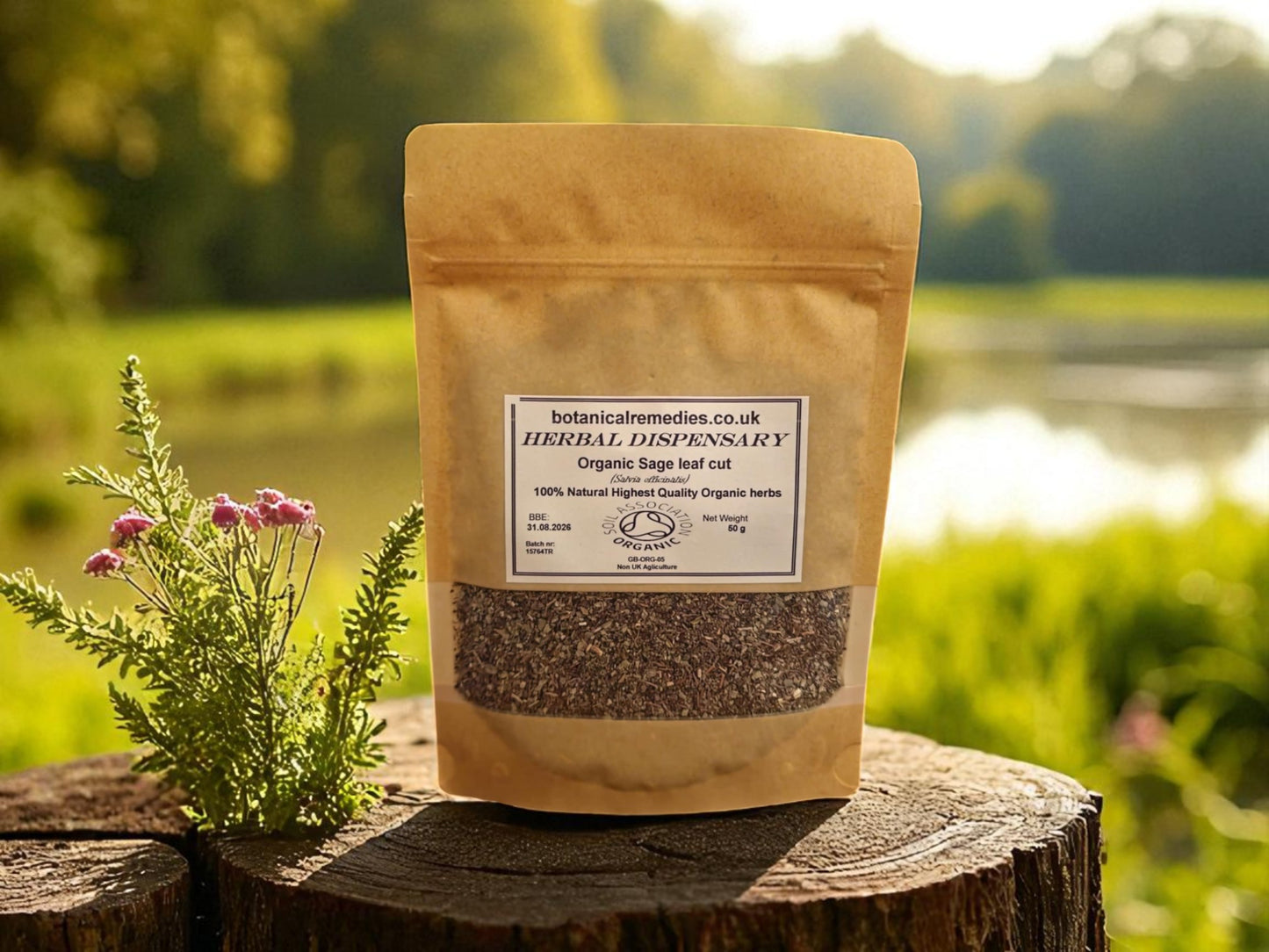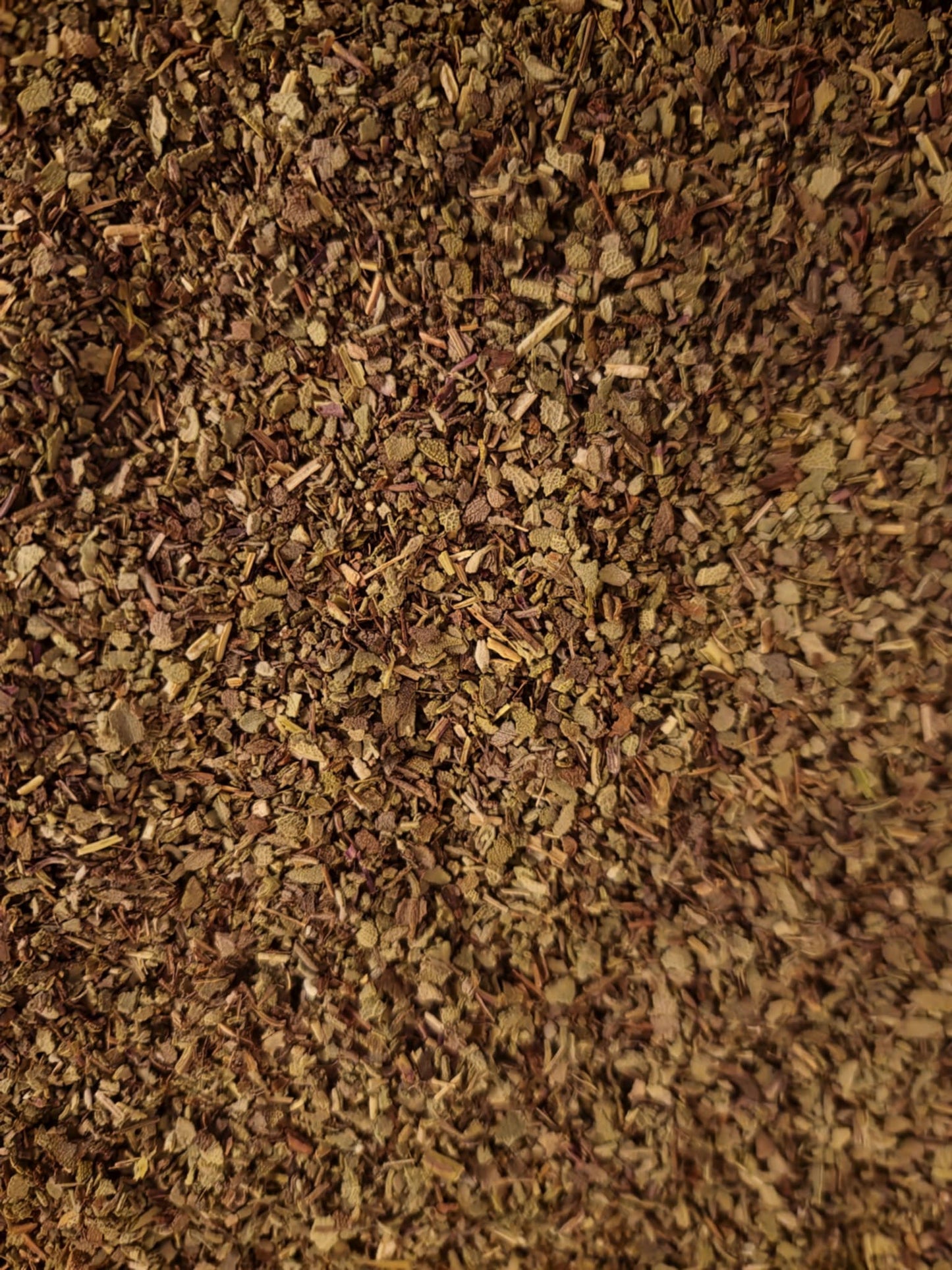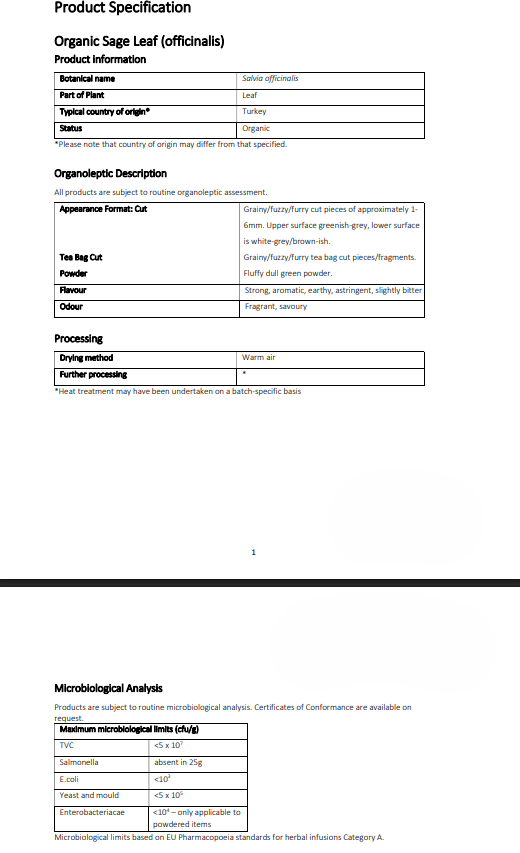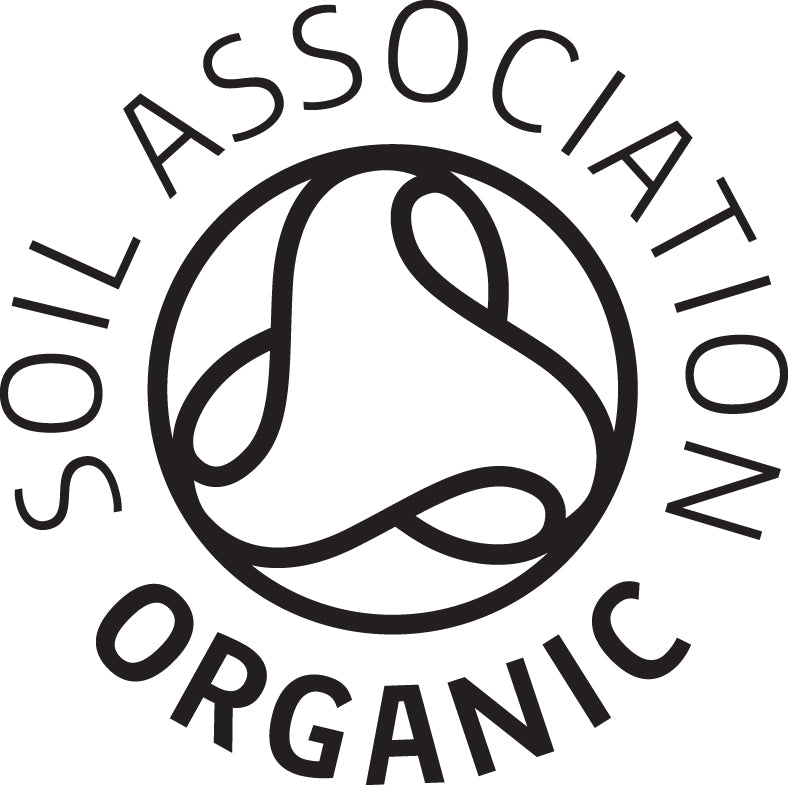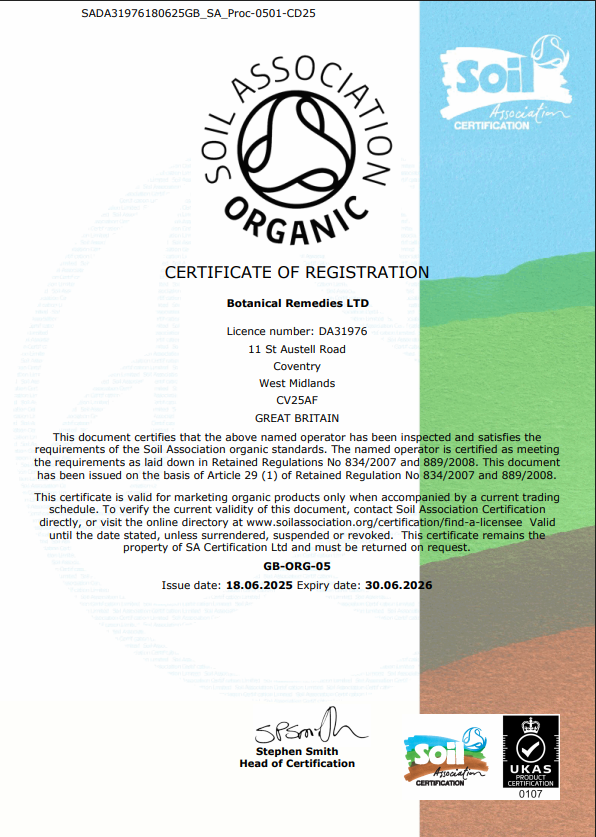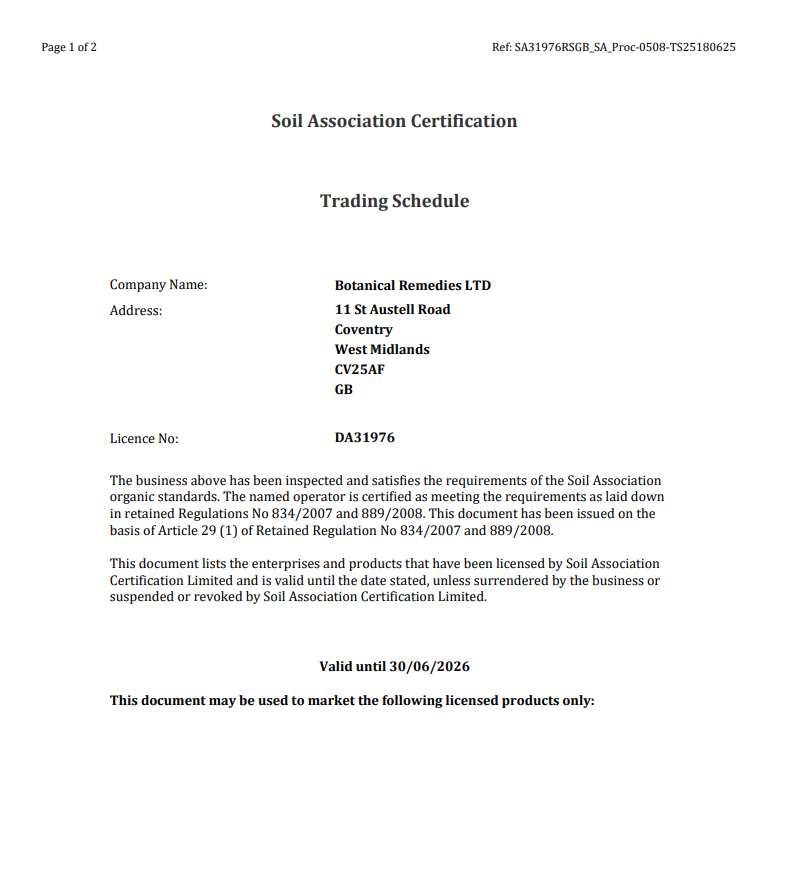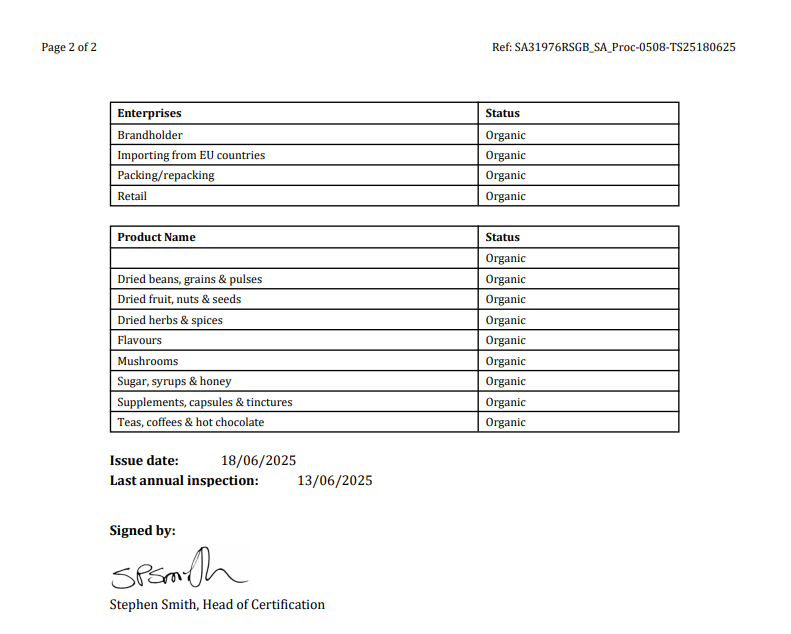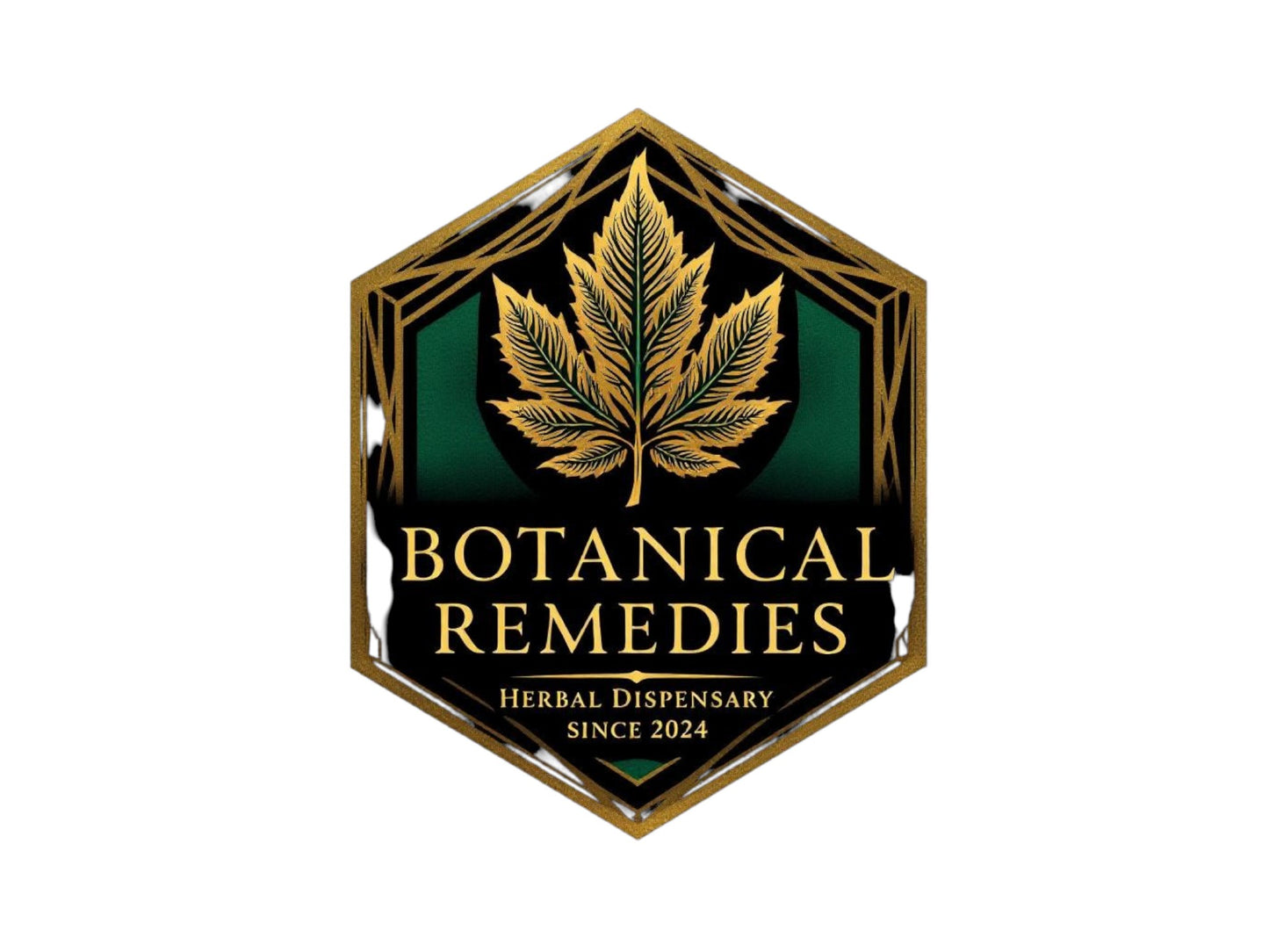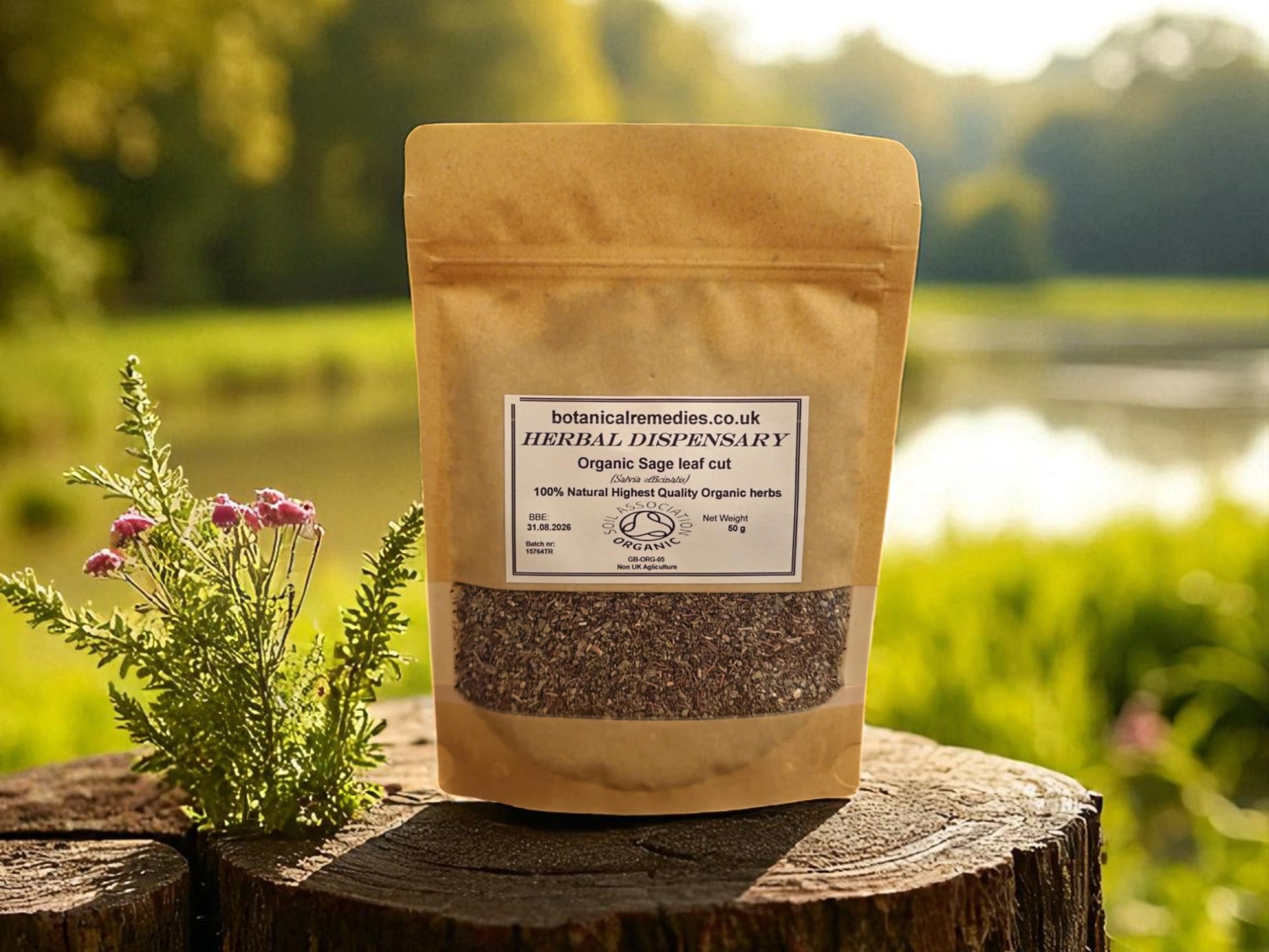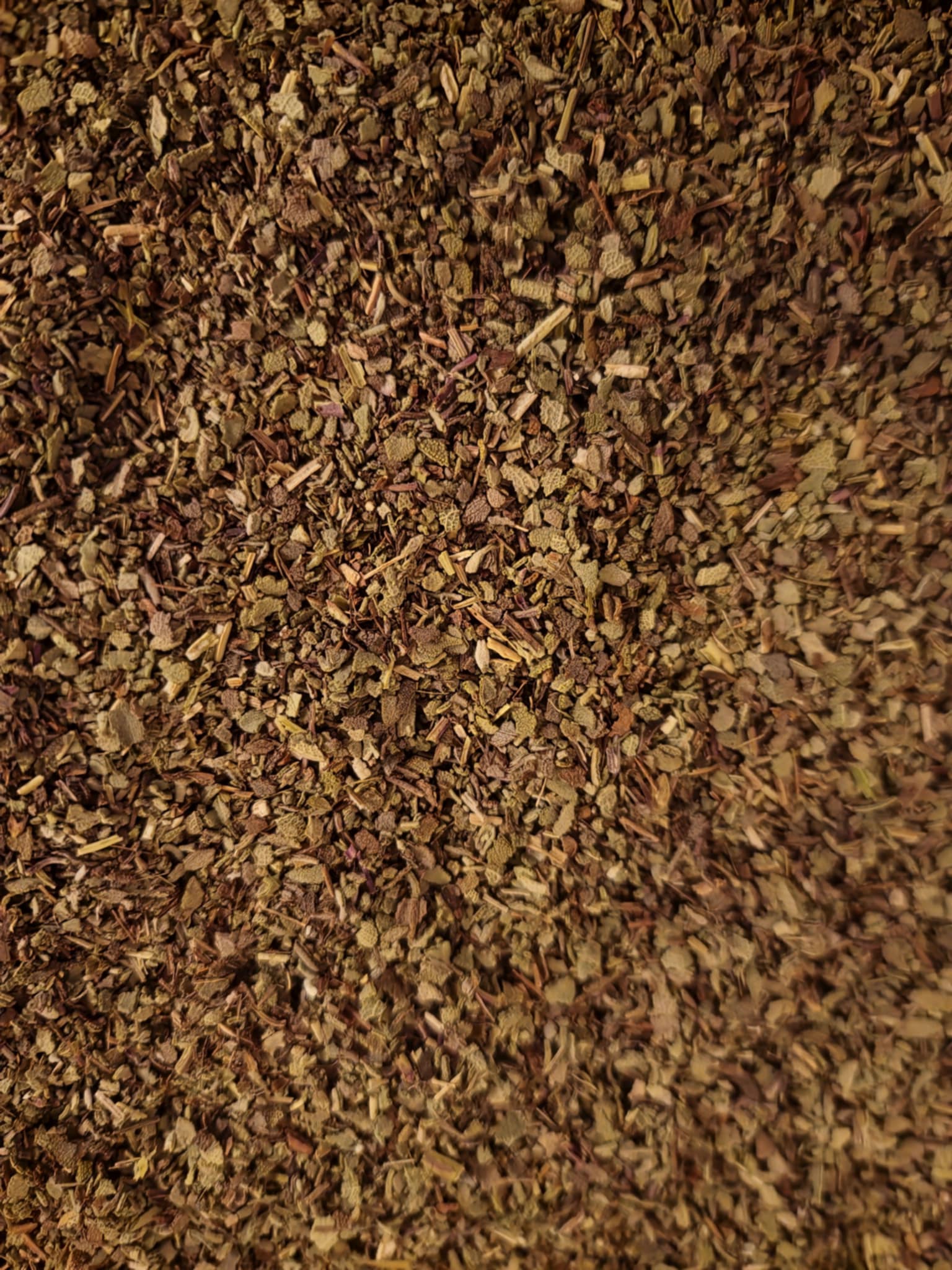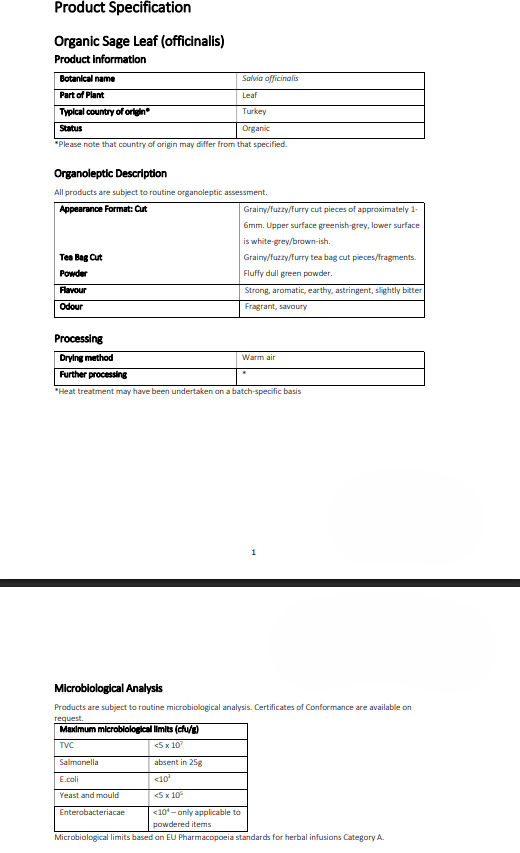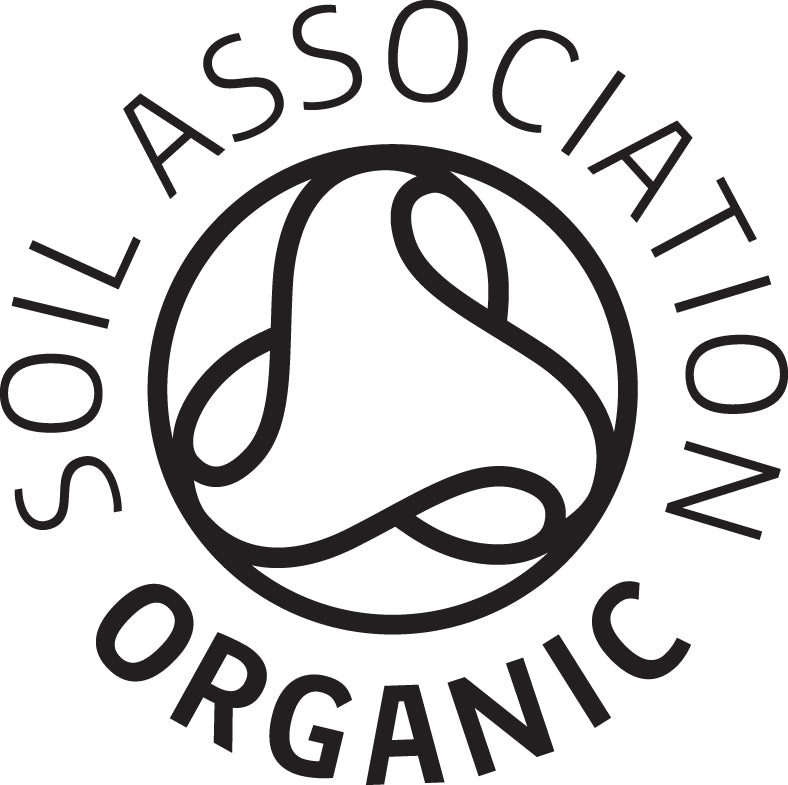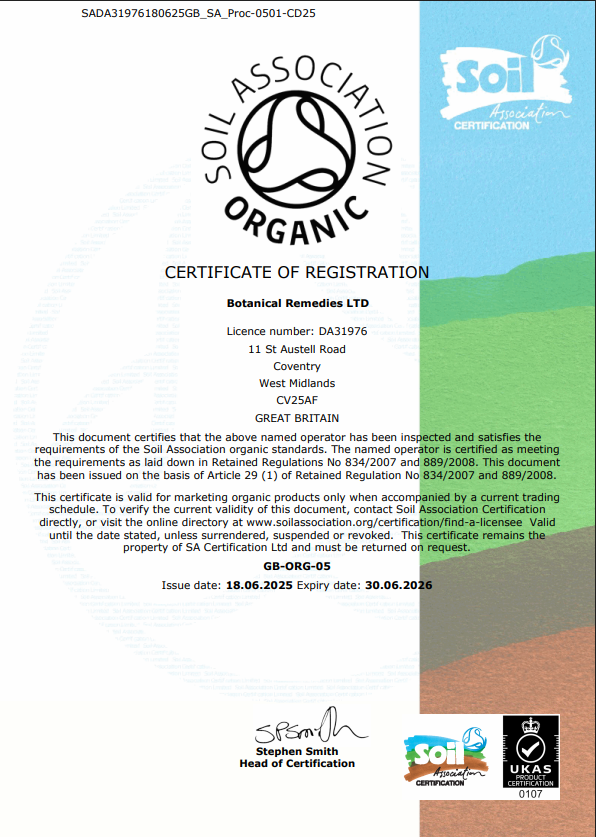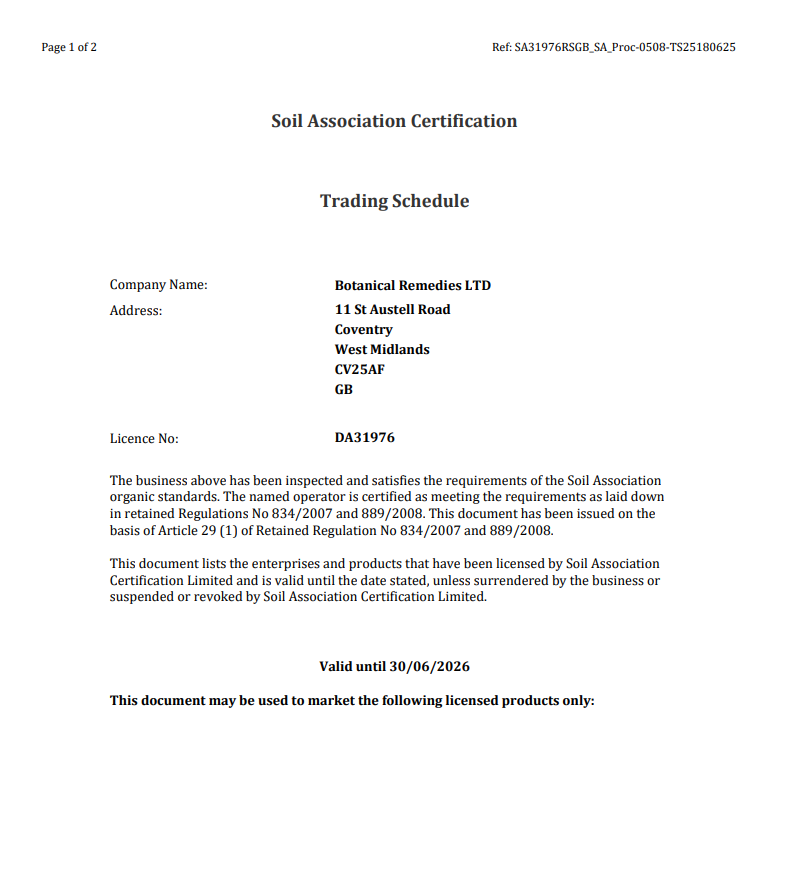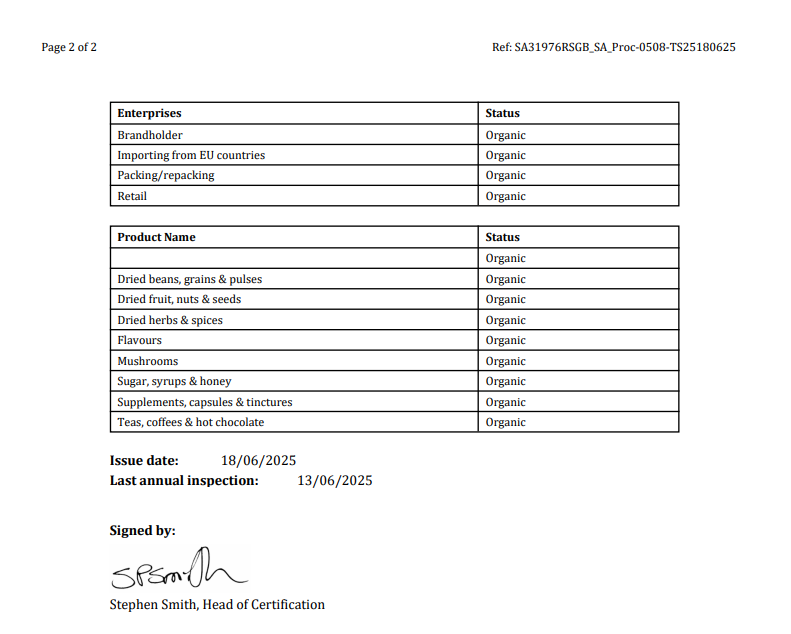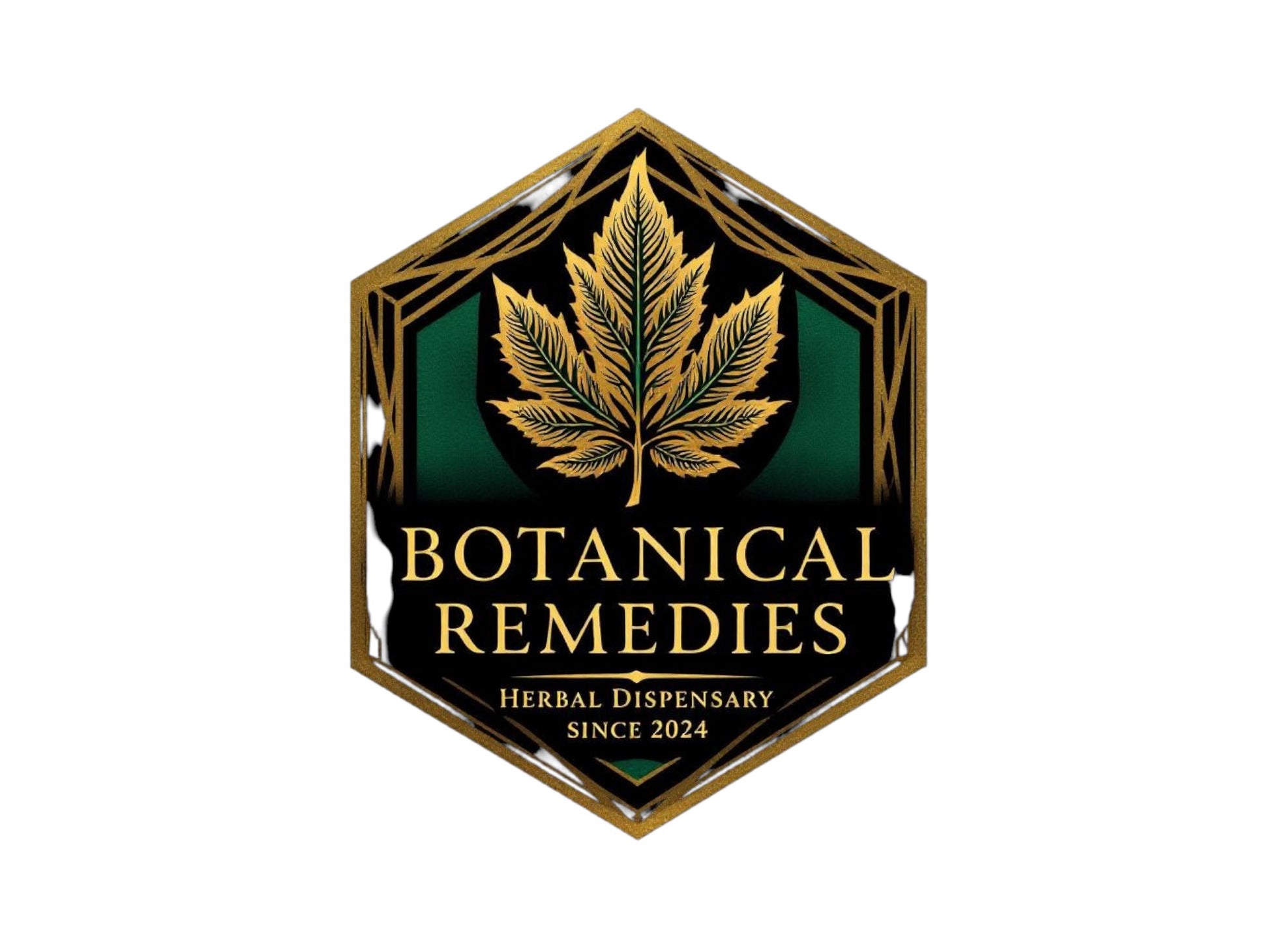Botanical remedies - Herbal Dispensary
Organic Sage leaf (Salvia officinalis)
Organic Sage leaf (Salvia officinalis)
Couldn't load pickup availability
Organic Sage leaf, dried and cut (loose herbal tea), only leaf no stalks
Latin Name: Salvia officinalis
- used traditionally for millennia's
- only exceptional quality and purity leaves are chosen
- aromatic and warming, unique flavour profile characterized by earthy, slightly bitter, and savoury notes
- certified organic to Soil association higher standards
-
certified Herb Mark, safe and efficient for use by Herbalists
- Practitioner grade
-
comply with EU Pharmacopoeia standards
- restoring, relaxing, stabilizing, astringing, solidifying qualities
- combines well and efficient with Rosemary, Echinacea, St. John`s wort as well with Agnus castus
- Considered pungent, bitter, astringent, dry, cool herb
- Vegan and Vegetarian friendly
How to use Organic Sage leaf:
Sage leaf can be made in to a powder, infusion, tincture, infused oil, vinegar, added to food as spice, and more.
How to prepare Organic Sage leaf tea:
To prepare Sage leaf infusion, add 1-2 teaspoons of leaves to a cup. Pour in a cup of boiling water. Allow to step under cover for 5-15 minutes. Strain the tea and drink it up to 3 times a day. Sage leaf has many other uses. You can research the benefits of this herb or ask an herbalist how it can help you.
Safety of Organic Sage leaf:
Cautions and Contraindications:
- Medicinal doses of sage should be avoided by those who are pregnant or breastfeeding. Normal amounts as used in food are safe.
- Epileptics are advised to avoid sage in medicinal doses due to the convulsant potential of thujones.
- Sage has the ability to greatly lessen or completely dry up breast milk, so is not advisable for lactating mothers who wish to continue to nurse but can be great for assisting the weaning process.
Other info about Organic Sage leaf:
Considered in Britain to be one of the essential herbs, along with parsley, rosemary, and thyme. Recipes for sage pancakes date back to the 5th century BC.
Other names:
- Common Sage,
- True Sage,
- Garden Sage,
- Dalmatian Sage
- Shenreg
- Szalwia
Organic Sage leaf Typical Ingredients:
100% pure Botanical, absolutely nothing added, exceptional quality and purity, dried and cut Organic Sage leaf, only leaf no stalks (Salvia officinalis)
Wild grown/Eco cultivated/Organic cultivated/Cultivated:
Organic certified to Soil Association higher standards
Country of origin:
Turkey
Packaging:
All products are hand packed in resealable and recyclable PE bags to ensure maximum freshness
Vegetarian/Vegan Suitability:
Suitable for Vegetarians and Vegans
Quality assured
Checkout Botanical Remedies other Sage products
Benefits of Sage leaf:
Sage leaf contains iron, vitamin A, C, B6, E, and K, calcium, manganese, zinc, copper, flavones, flavonoids, polyphenols and more
Because of UK law, we cannot provide any medicinal information about our herbs. However, at Botanical Remedies, we only offer herbs that have proven effects in literature or tradition. These herbs have been thoroughly tested in laboratories for authenticity, quality, and purity. Our herbs can be used efficiently and safely within recommended by literature doses.
Please do not confuse herbal teas and spices widely available on the market with our herbs as there is huge difference between process and cost of production medicinal herbs and other herbal teas and spices. Botanical Remedies offer only herbs that are efficient and safe to use by Herbalists.
Where can you find information about herbs?
You can look for details on herbs benefits, uses, and dosage. It's also important to know about safety and effectiveness. Additionally, consider the side effects. You can find both traditional and scientific knowledge on these topics.
Below few solid sources of information about herbs:
www.herbalreality.com web run by experienced Medical Herbalists
https://www.rjwhelan.co.nz web run by Medical Herbalist
https://botanicalremedies.co.uk/blogs/herbs blog run by Master Herbalist and Naturopath
Share
